10 Music Reviews
Click on the link to go directly to a particular review below:
Andrew, The Awkward Stage, The Black Neon, Childs, Dark Meat, Dyrdin, Ben Kweller, The Memory Band, Niobe, The Shrinking Islands
Andrew, 33: The Best of Andrew (Hanky Panky)
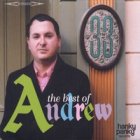
Andrew Sandoval's love of a fantastic pop song is immense; it's clear on every one of his releases as Andrew. He seems especially driven by a love of '60-'70s pop/rock, which makes sense given his career as a producer of reissues from that time. In a way he's a traditionalist, writing songs clearly in the mold of that time period. But at the same time his songs carry with them much life, and feeling. There's a happy demeanor to the catchy melodies, with sad, lonely feelings often expressed within. 33 is a subjective "best of". That is, Sandoval has gone back through his recordings and picked those he's especially fond of. That includes never-before-released songs as well as tracks from his albums. It's an enjoyable CD that showcases his songwriting skills quite well. – dave heaton
The Awkward Stage, Heaven Is for Easy Girls (Mint)

Vancouver-based musician Shane Abram Nellken is a one-man pop force as The Awkward Stage, playing bright, concise, sensitive pop songs that also displays a sense of humor, if you couldn't tell from the album title: Heaven Is For Easy Girls. The persona of many of these songs is that of a lovable loser, a sad boy in pursuit of sad girls, chronicling moments of confusion in song, with lyrics like, "If you're not who you say, love / may this helmet of foil protect me." There's attention-getting wit, but also genuine feelings of heartbreak, underneath the album's lyrics. Musically, the Awkward Age falls somewhere between the pure-pop melodic directness of someone like Elvis Costello and the lush, slightly theatrical sensitivity of the Smiths, or maybe Rufus Wainwright. There's an epic symphonic demeanor to a couple songs, and even a gospel tinge to one ("T-Rexia Nervosa"). On "1000 Teenage Hearts" he finds a mantra to repeat which feels like theme words for the whole project: "a thousand teenage hearts in my engine revving." The Awkward Stage takes the universality of teenage (and really, adult) awkwardness and turns it into gorgeous, satisfying pop music. – dave heaton
The Black Neon, Arts & Crafts (Memphis Industries)
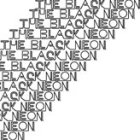
Arts & Crafts opens with the sound of the future...I mean, "the future"...you know, that laser-beam synth sound, the one that echoes through your mind with visions of Tomorrowland, of kaleidoscopes, of Flash Gordon and Buck Rogers. The song it introduces,"Ode to Immer Wieder," is an enticing instrumental theme in the vein of Air: synthesizers dreaming. Most of the album finds the Black Neon - essentially Steve Webster of Fort Lauderdale - trying to keep this same feeling around, but within pop/rock songs, generally a toned-down version of '70s glam rock, with some undertones of more '90s "alternative" rock, of the UK variety. On the best of these songs, Webster goes for a ragged rock n' roll dreamer vibe, the voice of a black leather jacket wrapped up in dreams. Take the interesting "Ralph & Barbara" for example; he sounds throaty and rough, but also lost in a romantic vision ("leave all this behind us / Barbara just you and me"), one that he attempts to give a historical-epic backstory. "The Truth" turns the synths into a thick wall, giving them the feeling of horror-movie excess, for better or worse. As the album proceeds, the sound-of-tomorrow is alternatively slimmed down and bulked up, sometimes in service of that moonage-daydream vibe (as on the excellent 'The Ghosts"), but sometimes in pursuit of the sweeping arena-rock feeling of upward motion, and its related sense of high drama. Here is when the Black Neon loses me. The further they get from those idyllic future-dreams, or I should say, the more those dreams seem Broadway-style epic, and the more I can imagine the daydreams to be of world domination (or at least of them on stage in front of millions), the duller their music gets. - dave heaton
Childs, Yui (Static)
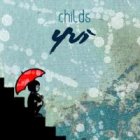
On their debut album Yui Childs, the Mexican duo of Paul Marron and Guillermo Batiz, creates some truly gorgeous electronic pop music that does indeed have some childlike aspects to it. It feels in some ways like an attempt to emulate in music, mostly instrumental, the dream worlds that an especially imaginative child might come up with. There's a softness and beauty to all ten of the album's tracks, but also an entrancing feeling of exploration. There's perhaps a creative relation to Japanese naivist electro-pop, Nobukazu Takemura and the like. Yet Childs doesn't sound as overtly "electronic" – the music drifts and floats, in an almost Cocteau Twins-like way, yet also often builds in the large-scale manner of a band like Sigur Ros, but with a degree of the delicate dreaminess of their friends Mum. All that adds up to a sound of their own, and one that's incredibly alluring, in a playful and immersive way. There's both calm and sadness in Yui, the dreams of childhood carrying with them the disappointments of adulthood as well. Magic and loss, both projected beautifully. – dave heaton
Dark Meat, Universal Indians (Cloud Recordings)

Dark Meat is a Southern rock band that dedicates its album Universal Indians to "the Holy Ghost of Albert Ayler" – what else do you need to know? This Athens, Georgia-based, 23-member collective, centered around songwriter/singer Jim McHugh, goes for an aggressively "free" style of warped-rock. Horns, vocals, percussion and blues-guitar are at the center, with themes of wildness and existential freedom right there with them. Ghosts abound everywhere, along with nature and drugs and a general mind-trip. There's something purposely primitive about this, down to the phrasings of the lyrics, but also something joyous and invigorating in Dark Meat's persistent attempt to break on through to the other side. – dave heaton
Dyrdin, self-titled (Skipping Stones)

The Icelandic group Dyrdin play perfectly catchy indie-pop in the style of groups like Heavenly: bright tunes, female vocalist, "cute" demeanor but not purposely so. They play it with more aggression than that description implies, however; there's certainly some of the punk spirit living in them, as they grab their instruments and take off on their own loud, fast journey. The group's songs on this album, their self-titled debut, are also steeped in worlds of fantasy, whether lead vocalist Hafdis Hreioarsdottir is singing in English or (more often) her native language. The liner notes explain the story behind each song, and each is more fairy-tale-like than the one before it. That suits their music well: the way they charge through their light, playful pop songs in a forceful way echoes with the same darkness/light combination inherent in all fairy tales, filled as they are with both dreams and nightmares. – dave heaton
Ben Kweller, self-titled (ATO)

To me Ben Kweller's appeal always fell within a personality on record that was goofy yet still endearing. On his self-titled third album – that titling tactic automatically suggesting reinvention – he's cast aside that first adjective to focus solely on the second. His m.o. here is sincerity above all else…and it works surprisingly well. It's perhaps his most enjoyable album yet – mostly because the pop hooks are sharper than ever, but also because there's something about his singing-from-the-heart approach that does feel sincere, humble even. The basic themes of the album are romance and independence; the album is awash in idealist odes to love, along with celebrations of living life as you want, going wherever you want. All of this is quite textbook in a way – pop culture certainly doesn't need more tales of young outcasts in love, them against the world. But it's also quite moving somehow. A ballad like "Thirteen" paints a preposterously perfect picture of love, but there's something real attractive about it. It certainly helps that Kweller has loaded the album with sweet and absolutely addictive melodies. His approach overall is simple and effective…which is why the album loses steam near the end, in those same moments when "simple" gives way to a more overblown style, culminating in a "rock out" closer, "This Is War", that's so much less magical than the simpler daydreams of the album's first half. – dave heaton
The Memory Band, Apron Strings (DiCristina)
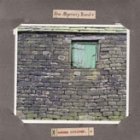
Several years back, Stephen Cracknell was making lovely post-rock, sort-of electronic moody instrumental music under the name Gorodisch. These days he's turned a similar approach into a genuine English folk band, The Memory Band, still using digital loops as the backbone, even if it isn't immediately apparent to the ear. On their album Apron Strings the Memory Band is looking to traditional folk music of the past, but getting there through very 21st century methods. That adds up to music that's progressive and filled with the emotional roots of history ("memory"). This lovely, absolutely enjoyable album opens with a relaxed, violin-led take on the traditional tune "Blackwaterside" and ends with a rousing rendition of Ronnie Lane and Slim Chance's "The Poacher," a sign that the group takes a wide view of music. That's part of the charm of this album, the way they tackle traditional folk songs and newer pop/soul songs, like Carly Simon's "Why" and Rotary Connection's "Want You to Know," with equal aplomb. Nancy Wallace's lead vocals on several of the songs are especially enchanting, carrying inside them so much feeling and experience. But the whole album is that expressive of feelings, deeply sad feelings as well as bright and hopeful ones. There's also a breezy, outdoors mood to the music, one that makes the album fly past while taunting you to listen again. Each listen feels like a trip into the past and the future; The Memory Band plays innovative music that also retains a connection with the people, places, and experiences that came before. – dave heaton
Niobe, White Hats (Tomlab)

The German electronic musician Niobe, aka Yvonne Cornelius, has filled her latest album White Hats with an intriguing style of new-electronic-pop music that carries with it the dream of a chanteuse singing old-style ballads in some faroff, altered universe. She has an ear like Bjork's for making pop music strange and futuristic. On White Hats her singing voice is warped in all kinds of ways, while nonetheless keeping the air of some old-fashioned jazz crooner. That classic ballad feeling blends seamlessly into the shifting, adventurous electronic soundscapes, dressed as well with classy piano and bossa nova-like acoustic guitar. It's all very lush, very romantic, but also quite minimalist, and daring in the way. Dramatic strings give "Touch This Flower" the aura of Hollywood drama at its start, while the ballad "In the Sun" offers a comparatively stripped-down demeanor focusing on voice, guitar, and echo. At the same time, tracks like "Up Hill and Down Dale" and the closer "Cool Alpine" are soul/house mini-epics for the dancefloor. Much of the appeal of White Hats lies in the way that Niobe moves across genres like that, while always making the music feel like an extension of her own personal vision of the world. – dave heaton
The Shrinking Islands, In the Black Carpet (Sort of Records)
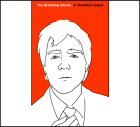
On their 8-song album In the Black Carpet, the duo The Shrinking Islands plays earnest pop/rock streamlined down to the basics: a guitar, some drums, and a singer painting portraits and telling stories. These songs vividly do both, while also capably conveying a tone of consideration, reflection. They play briskly, brightly at times; slowly and ruminatively in others. Both styles are fetching in their hands. Certain lyrics stand out for how evocative they are, the way they bring out feelings and/or images in a direct yet indirect (un-obvious) way. My brain keeps catching on the "When the street lights line the clouds" image of "The Secret Activities Begin," and a later song's chorus "We're getting swallowed in grace." There's a light-as-air feeling about In the Black Carpet, nice like that. But it's substantial music too, music that lingers. – dave heaton
Copyright (c) 2006 erasing clouds |
|